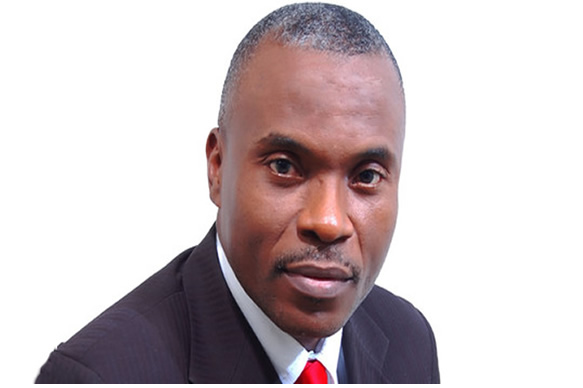UDDIN IFEANYI FROM PREMIUM TIMES
I believe that Mr Godwin Ifeanyichukwu Emefiele is the lousiest central bank governor Nigeria has ever had ― and this is not because we have not had gentlemen hold that office. Arguably, he ranks as one of the worst persons that ever happened to that function anywhere in the world. You only need to have followed reactions across social media platforms to get this. The man’s ―an ex-commercial banker ― understanding of monetary policy management was so unconventional, it accommodated that clumsy invitation to the proprietor of abokifx.com to a duel at the Central Bank of Nigeria’s (CBN) head office in his bid to staunch the naira’s haemorrhage.
If his policies were only farcical, we would all have been pardoned for having a good laugh. But the net balance on the external reserves are in unusual (not just because on Mr Emefiele’s watch the CBN has been unable or unwilling to publish its audited accounts for years now) territory ― and this before we account for the apex bank’s contingent foreign exchange liabilities. The cash confiscation fubar early this year was as unbelievable as the myriad hurts it inflicted on our people were unnecessary. In other words, the CBN’s policies with Mr. Emefiele in charge were themselves a charge on public resources.
This is but part of the story, however. At a personal level, my experience of Mr Emefiele was far more nuanced. Everywhere that I had the chance to ― my weekly columns here, and on my social media handles ― I struggled to advert as much attention to the real and present danger that most of his policies represented to the economy. Given the goal and operational independence of the central bank, the danger of hard wiring these errors into the country’s economy loomed large for the 9 years that he held that office.
The distrust that attended my jeremiads I could manage. Nigerians, a famously querulous bunch have a thing for “hard evidence”. Yet, the evidence of the hurt to an economy from a policy of fiscal repression (such as the CBN has pursued over the last five years) coupled with the frenzied activity of a spend-thrift government (the Buhari administration was a disaster) was always likely to be post-dated. Inflation years ahead. The rapid erosion of the value of all savings, including pension funds’ but excluding those saved in currencies other than the naira. Even then, at its very heart, the disbelief that attended much of my commentary ran along two mutually reinforcing tracks: general economic illiteracy; and the subconscious desire of most of us to keep illegal spigots running in the hope that we may someday happily introduce our snouts to the troughs that these spigots feed.
Attempts to muzzle me were of a different order of magnitude altogether. There was the benevolent variety. Largely persuaded that I was not the most set upon victim of Mr. Emefiele’s central bank’s “follicies”, the concern here was that I was needlessly running a deadly gauntlet. Invariably, conversations in this space ended with the admonition, “Please remember, that these are very dangerous people!” More malignant were the efforts at undistilled censorship by Nigerians who ordinarily (and regularly) bruit themselves about as agents for the change Nigeria needs. Invariably, the message was like “How dare you talk about a major regulatory body that way?”
Through all this, I was exercised by a different “How?”, though. “How”, I nearly always asked myself, “were we going to alter the country’s trajectory without setting out markers for conduct that distinguish between good and bad, that invite debate around this distinction? How, put differently, do we create a nutritive medium – psychological, social, cultural, etc. – that prioritises processes that deliver the greatest good to the largest number of our people?” Stripped of any sophistication, this question breaks down into a concern with the processes and procedures through which folk get into leadership positions in our private and public sectors. I am not sure which is the more ruinous, here: fixation with a candidate’s proficiency at prostrating; a fondness for familial links; or a predilection for loyalty over competence.


